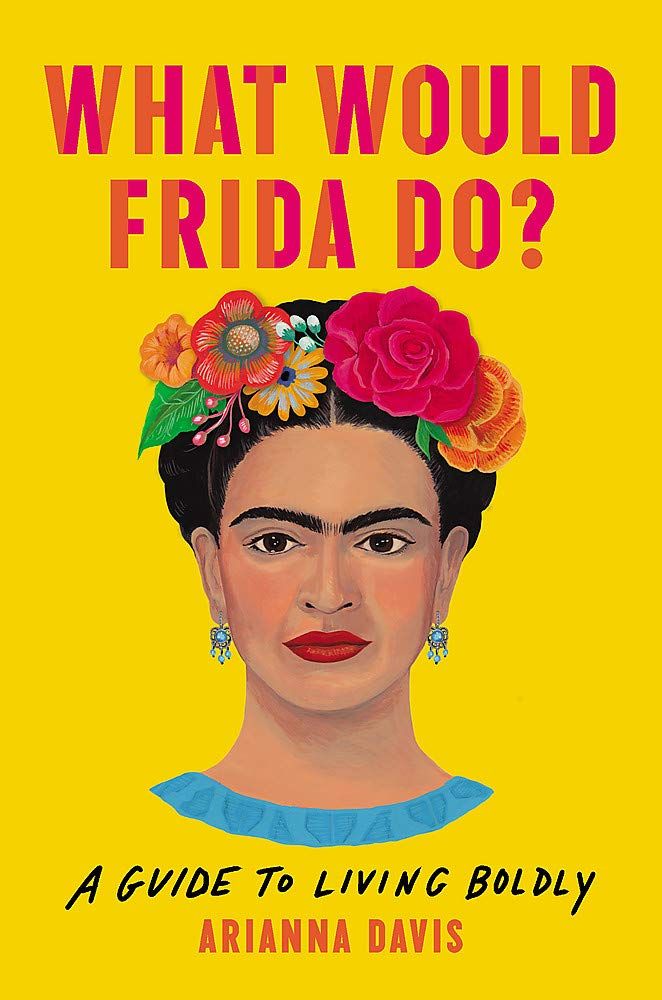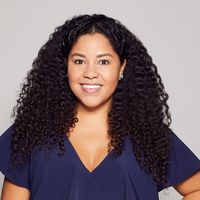How Frida Kahlo Inspired This Latina to Finally Speak Spanish
After writing a book about the bold Latinx icon, I decided it was time to make a bold move myself.
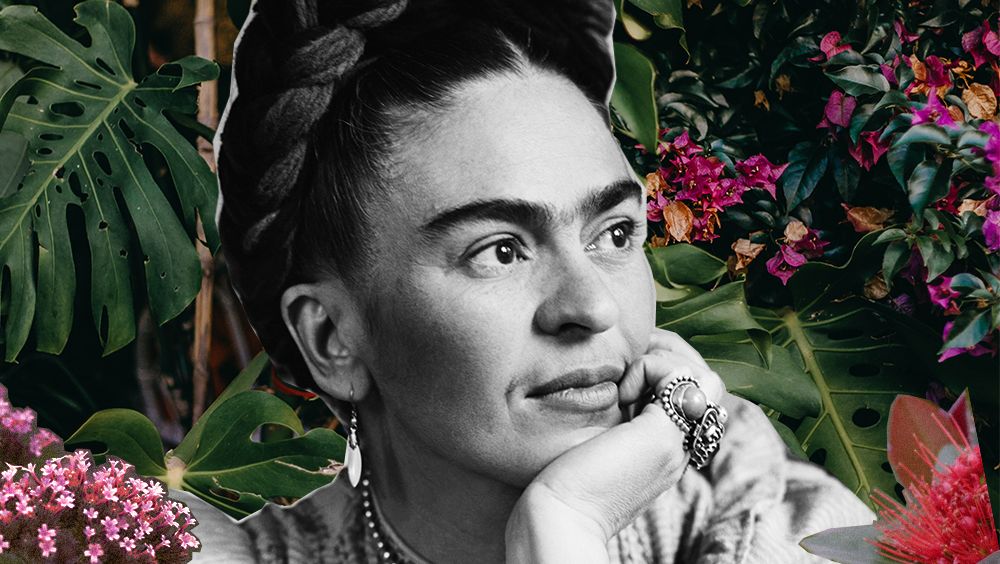
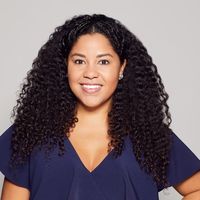
I spent nine months on the first draft of my debut book, What Would Frida Do? A Guide to Living Boldly (out October 20). In between countless late nights pounding at my keyboard and weekends pouring through books about her art, I also spent time in Mexico City. It was important for me to visit Kahlo's home, La Casa Azul, and to explore her neighborhood of Coyoacán. To see the world through Frida’s eyes.
Adding to the canon of incredible books that already exist about the iconic Mexican artist is intimidating enough. But as a Latina, I felt an added responsibility to carry on the torch of Kahlo’s legacy—and to carry it well. By the time I read the revised draft of my book last spring, I was in awe that I had actually done it.
Then came the email from my book publicist.
“Forgot to ask whether you speak Spanish and feel comfortable doing interviews in Spanish?” she wrote. Before I even finished reading her note, I felt a knot in my chest. It was the same tangle of anxiety that settles in my throat whenever a family member or stranger speaks to me in Spanish. I got flashbacks to being in Mexico City, vibrating with embarrassment as I struggled to explain that I was writing a book about Frida...but couldn’t fluently speak her native tongue.
I typed to my publicist with a sinking stomach: “Sadly, I’m not comfortable enough with my Spanish to do interviews.”
For many years throughout my career, I had wondered if this would eventually happen. My mother is Puerto Rican, the daughter of parents who moved from the island to the Bronx, New York, in the ‘50s. When my mom eventually married my Black American father and they headed to the suburbs of Baltimore, Maryland—where no one they knew spoke Spanish—my mom didn’t have much reason to speak the language in our household. My older brother, younger sister, and I grew up understanding it much better than we spoke it; when we’d go to my grandparents’ house, they would speak to us in Spanish, and we’d respond in English.
It didn’t feel like a big deal until I got older. I remember trying to pronounce the name of a Spanish song to a friend in college, and feeling the heat rise in my face as he burst into laughter. “Aren’t you supposed to be Puerto Rican?” he said, doubled over. That was just one of many similar encounters over the years, often punctuated with, “Oh, so you’re not really Puerto Rican,” or “How could your mother not teach you Spanish?” Over time, my inability to speak the language began to feel less like circumstance, and more like a deep-seated insecurity—a glaring red X over my identity as a Latina.
Get exclusive access to fashion and beauty trends, hot-off-the-press celebrity news, and more.
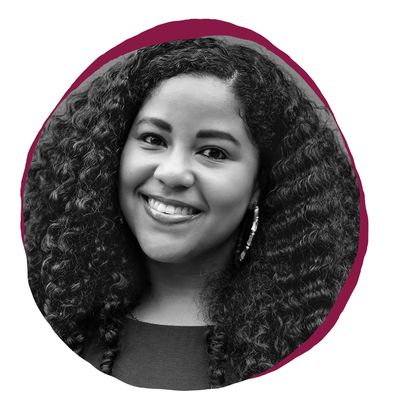
The author, Arianna Davis, who’s currently the digital director of O, the Oprah Magazine.
Thanks to social media and my time as a journalist, I’ve discovered that I’m far from alone. According to the Pew Research Center, in 2015, only 73 percent of Latinos spoke Spanish at home and, as of 2017, 22 percent of Latinos in the U.S. didn't speak Spanish, period. Anecdotally, I’ve found this is particularly common amongst Mexican Americans and Puerto Ricans, which makes sense given that, respectively, they are the number one and two largest groups of Latinos in the United States. It’s also important to note Puerto Rico’s status as a U.S. colony, which means American culture and English are heavier influences there than many other places in Latin America.
Research suggests one of the common reasons language doesn’t travel through generations is because of assimilation; often, immigrant families simply want their children to fit in and not face discrimination, so they’ll solely speak in English at home. That leads to many second and third generation Americans, like me, who identify as Latinx and are proud of their heritage, but don’t fluently speak the language of their ancestors.
Still, after I responded to my publicist that afternoon, I felt defeated. I knew that I wasn’t alone in my struggles with Spanish, but that didn’t make them any easier to admit. Then my eyes flickered to the lockscreen on my iPhone, a shot of the vibrant yellow cover of What Would Frida Do? Suddenly, it hit me: Why wasn’t I asking myself...what would Frida do? I had written a guide about living a bold life, inspired by one of history’s boldest women. It was time to take my own advice.
“Frida’s fearlessness in the face of her flaws can inspire us to get over our own imposter syndrome, whether we’re feeling inadequate in the boardroom or in a relationship,” I wrote in a chapter about confidence. “I can imagine that she would tell us—even if we don’t quite believe it ourselves—to always be our own biggest cheerleaders.” After rereading those lines, I was ready to stop complaining about not speaking Spanish, and finally do something about it.
After a few hours of research, I came across Fluenz, a program that helps students learn languages through curated, week-long immersions in cities like Mexico City and Barcelona. During the pandemic, founder Sonia Gil and her team decided to recreate the typically in-person process with a six-week virtual immersion. I was hesitant about committing to three classes per week while working remotely, but I decided that if I was going to be serious about this, I needed to be all-in.
During my initial assessment, I took a deep breath to overcome my usual shyness and explained to my team of coaches—all based in Mexico City but from various Latin American countries—that my Spanish was intermediate, despite the fact that I’m Puerto Rican. But Gil was quick to reassure me.
“This is a story I hear from a lot of my students: ‘I’m proud of my heritage and who I am, and I understand [Spanish] better than I speak it, but I want to be able to speak without hesitating and feel good about it,’” Gil says. After many years of teaching, she knows that “learning a language puts you in one of the most vulnerable positions you can be in.”
But, she adds, the only way to learn a language is to do just that: learn it. “If you feel ashamed because you have an accent or that you’re gonna sound like a toddler—that’s okay. You are going to sound like a toddler! But eventually, that toddler will grow up into a confident adult. It just takes time.”
My inability to speak the language began to feel less like circumstance, and more like a deep-seated insecurity—a glaring red X over my identity as a Latina.
Accepting that when I opened my mouth I might sound like a babbling baby was much easier said than done; after all, it took writing an entire book about an unapologetic, resilient woman to get the courage to face my fear head on. But I decided to accept the challenge. Three times a week after work, I would open up a Zoom session with the Fluenz team. Between lessons on grammar and Spanish reading comprehension, my teachers would chat with me. They’d ask about my life, my job, my previous travels, and how I was coping with the pandemic—all in Spanish.
For the first few weeks, I felt the familiar anxiety creep up when I stumbled over words or tried to remember basic phrases. Every time I would clam up, though, I’d try to remember my guiding question: What would Frida do? I envisioned myself in the future, talking to a reporter on the phone or maybe even on television, speaking confidently about my book in crisp, clear Spanish. Then I’d take a deep breath, and just...talk. I began to think less and less as I slipped into conversation.
One evening after a Friday night class, I got into an Uber to meet a friend for an outdoor dinner. The driver immediately began making small talk, and we chatted casually. It took me a few minutes before I realized that we were speaking Spanish—and it had come naturally to me. For the first time, I wasn’t overthinking, and I didn’t feel my cheeks getting red. When there was a break in conversation, he turned up the radio, humming as he blasted one of my mom’s favorite Héctor Lavoe salsa songs. As I gazed out the open window with the New York City skyline whizzing by, I noticed the knot in my chest had dissipated into the night air.
After six weeks of virtual lessons, I’m not fluent. (To be fair, Gil says it’s basically impossible for anyone to become fluent in six weeks.) But since that night, I’ve felt my confidence increase whenever I speak Spanish with friends, family, or even strangers. Instead of assuming everyone is prepared to laugh at me, I’ve learned that, in the end, everyone just wants to connect through a shared culture—and, for my culture, that includes a shared language.
So, while I still have a long way to go before I’d feel ready to do an interview about Frida entirely in Spanish, I am proud of my progress. I’m proud that I took the first step, that I put myself out there, and that I’m even typing these words. And I think Frida would be pretty proud, too.
RELATED STORIES

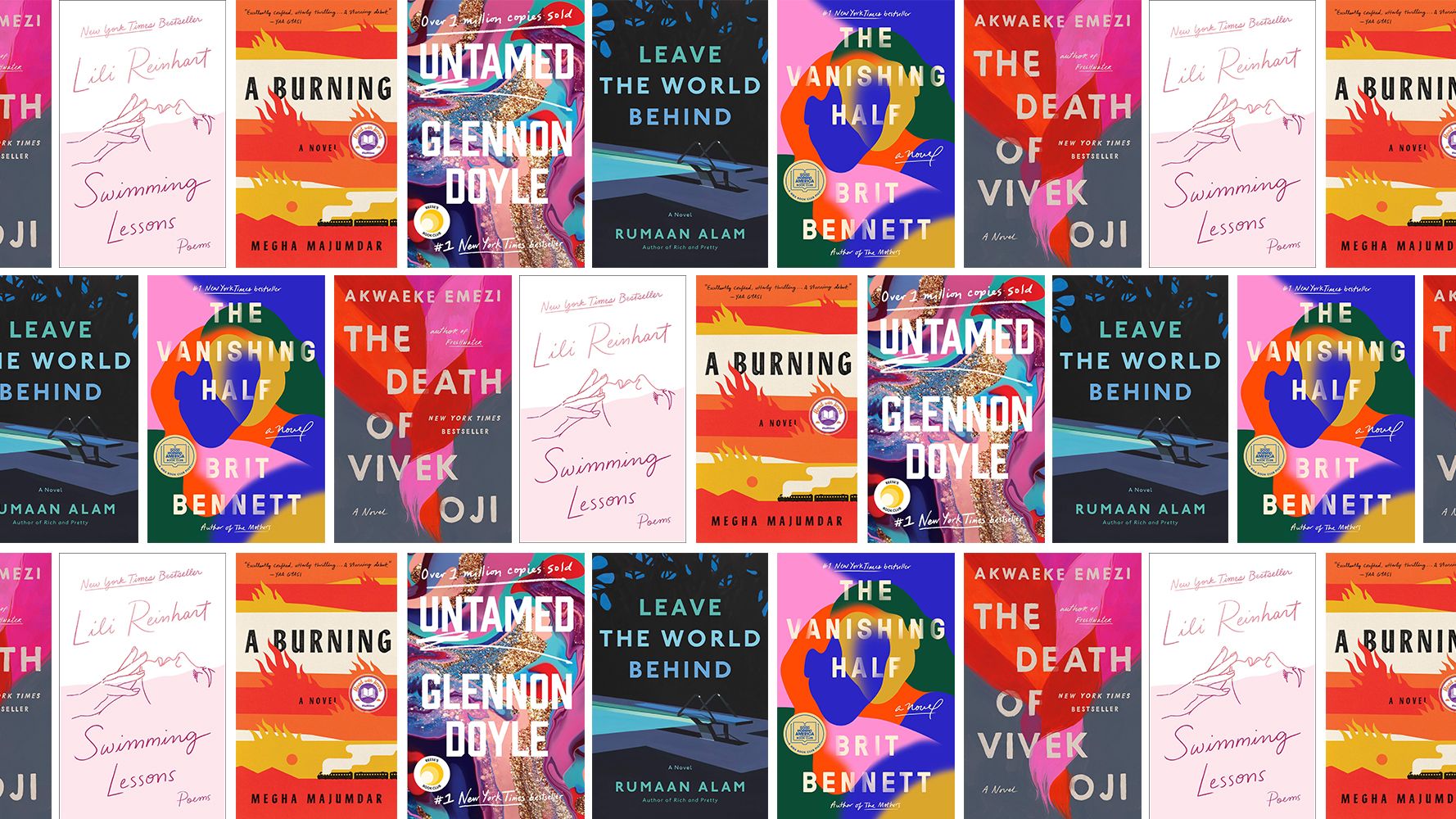
As Senior Director of Editorial & Strategy, I oversee all of Oprah Daily's digital content, from editorial to video to social media. I was previously the Digital Director of OprahMag.com, and before that, Senior Features Writer at Refinery29, where I also served as a video host and on-camera entertainment expert. Fun fact: I got my start in journalism as an intern at _O, The Oprah Magazine, so my role overseeing Oprah Daily's website is a major full-circle moment! On the weekends, I'm probably either having a margarita, adding new books I don't need to my TBR pile, or playing with my puppy, Leo.
